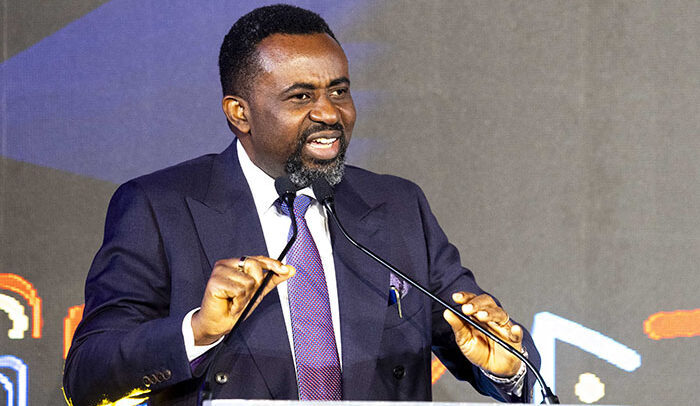Cedi Gains, Inflation Drops as BoG Considers Policy Shift.
Ghana’s economic landscape is painted with encouraging strokes of recovery and stability, as highlighted by Governor Johnson Pandit Asiama at the 125th Monetary Policy Committee (MPC) meeting of the Bank of Ghana (BoG) on Monday, July 28, 2025.
With a strengthening Cedi, plummeting inflation, and robust economic growth, the nation stands at a pivotal juncture, prompting the BoG to consider a recalibration of its monetary policy.
Addressing colleagues, media, and distinguished guests, Governor Asiama outlined a picture of significant domestic progress against a backdrop of moderating global growth and persistent vulnerabilities.
While the world economy is projected to expand at a subdued 2.8 percent in 2025 due to high interest rates, tight financial conditions, and geopolitical tensions, Ghana is charting its own course of ascendancy.
Inflation Tamed, Cedi Soars:
The most striking achievement on the domestic front is the remarkable disinflation process. For six consecutive months, headline inflation has steadily declined, reaching a commendable 13.7 percent in June 2025 – the lowest rate since December 2021.
This impressive decline, Asiama noted, is a testament to “multiple reinforcing factors, including disciplined monetary and fiscal policy management and the appreciation of the cedi.”
The Cedi, Ghana’s national currency, has staged a powerful comeback, appreciating significantly against major international currencies. It gained a remarkable 42.6 percent against the US dollar, 30.3 percent against the British pound, and 25.6 percent against the euro.
These gains are attributed to increased export receipts from gold and cocoa, robust remittance inflows, and renewed investor confidence following successful reviews under the IMF Extended Credit Facility.
Economic Activity on the Upswing:
Ghana’s economic engine is firing on all cylinders. Provisional GDP data for the first quarter of 2025 reveal a robust real growth of 5.3 percent, primarily propelled by strong performances in the agriculture and services sectors.
Non-oil GDP exhibited even faster growth at 6.8 percent. Further underscoring this positive trend, the Bank’s Composite Index of Economic Activity rose by 4.4 percent in May, buoyed by strong consumption, increased trade volumes, cement sales, and a significant rebound in tourism.
These improvements are clearly reflected in stronger business and consumer confidence, as evidenced by recent Purchasing Managers’ Index (PMI) data.
Fiscal Fortitude and Debt Reduction:
The government’s fiscal discipline has yielded impressive results. The 2025 Mid-Year Budget Review highlights a primary surplus of 1.1 percent of GDP, significantly exceeding the 0.4 percent target.
The overall fiscal deficit has been reduced to a mere 0.7 percent of GDP, with actual expenditures coming in a notable 14.3 percent below target.
In a rare and significant achievement, Ghana has recorded a 15.6 percent reduction in its public debt stock in the first half of the year, bringing the debt-to-GDP ratio down to a healthier 43.8 percent. These outcomes, Asiama emphasized, “signal a credible path to debt sustainability and macroeconomic stability.”
Banking Sector Resilient, Risks Remain:
The banking sector demonstrates stability, with improvements in liquidity, profitability, and solvency. The capital adequacy ratio, excluding regulatory reliefs, rose to 18.2 percent in June 2025.
However, the non-performing loan (NPL) ratio remains elevated at 23.1 percent, prompting the Governor to emphasize the need for continued supervisory attention.
A Policy Shift on the Horizon?
As the MPC embarks on its deliberations, the central question revolves around whether the current macroeconomic conditions warrant a recalibration of the monetary policy stance.
With inflation expectations more firmly anchored, external buffers significantly strengthened, and public confidence on the rise, Governor Asiama posed the crucial question: “we must consider how best to support the recovery without compromising the hard-won gains in stability.”
Despite the optimistic outlook, Asiama cautioned against potential risks. These include a possible resumption of exchange rate volatility, an increase in crude oil prices, and the potential impact of new taxes introduced in the mid-year budget review on pricing behavior and inflation expectations.
He urged staff and MPC members to maintain a strong focus on these forward-looking risks and policy trade-offs.
“Our mandate is clear: to maintain price stability while enabling the conditions for inclusive and sustainable growth,” Governor Asiama concluded, officially declaring the 125th Meeting of the Monetary Policy Committee open.
The nation now awaits the outcome of these critical deliberations, which will undoubtedly shape Ghana’s economic trajectory in the months to come.


